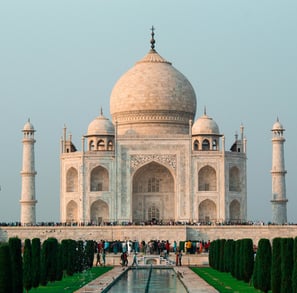India
Yes, it is possible to obtain residency in India, but there are specific visa categories and requirements that you would need to meet depending on the purpose of your stay. India does not have a "permanent residency" system like some other countries, but it does offer several types of visas and long-term stay options for foreigners. Here are the main ways to obtain residency in India:




Country information
Population: 1.438 Mill hab Aprox.
Capital: Nova Delhi.
Official Language: Hindi and English.
Income percapita: $10.020 Dólares PPA.


1. Tourist Visa
Short-term Stay: A Tourist Visa is typically granted for short stays, usually up to 6 months. While not intended for permanent residency, it allows you to stay temporarily in India. You can apply for an extension in some cases, but generally, a tourist visa cannot be used for long-term residency.
2. Employment Visa
Work Visa: If you have a job offer in India, you can apply for an Employment Visa. The Employment Visa is typically valid for the duration of your contract (usually 1-5 years). It's not a direct path to permanent residency, but you can live and work in India as long as your visa is valid.
3. Student Visa
Study in India: A Student Visa allows you to stay in India for the duration of your studies at a recognized educational institution. Once your studies are completed, you would need to leave the country unless you apply for another type of visa.
4. Business Visa
Starting a Business: A Business Visa allows individuals to stay in India if they are starting or investing in a business. It’s not a path to permanent residency, but it provides long-term stay for business purposes.
5. Overseas Citizen of India (OCI)
Long-Term Residency for Overseas Indians: If you are of Indian origin (or have Indian ancestry), you might be eligible for an Overseas Citizen of India (OCI) card. This is not the same as Indian citizenship, but it allows you to live and work in India for long periods. It’s a lifelong visa, though you cannot vote or hold public office.
6. Person of Indian Origin (PIO) Card
This card used to be available for people of Indian origin (like OCI), but it has now been merged with the OCI card. It offers long-term stay and some privileges in India, such as the ability to purchase property.
7. Long-Term Visa (for specific cases)
Special Visas for Other Categories: If you are married to an Indian citizen, you can apply for a Long-Term Visa (LTV). This is often granted for spouses of Indian nationals and can last up to 5 years. After that, you may apply for an extension or switch to a different visa.
8. Permanent Residency (Restricted)
Permanent Residency Status (PRS): India has a Permanent Residency Scheme (PRS) for foreign nationals, but it is only available under certain conditions (such as investment in specific sectors or regions). This is very limited and typically granted to nationals of certain countries under bilateral agreements with India. It’s not commonly available to most foreign nationals.
9. Visa Extension
Extending Stay: If you are on a valid visa (such as a Tourist, Employment, or Student visa), you may be able to extend it under certain conditions. However, extensions are usually limited, and you cannot stay indefinitely on a tourist or short-term visa.
General Residency and Stay Requirements:
Registration: Depending on the type of visa, you may be required to register with the Foreigners Regional Registration Office (FRRO) or Foreigners Registration Office (FRO) if your stay exceeds a certain duration.
Visa Renewal: If you wish to stay longer than the visa period allows, you will typically need to apply for a renewal or switch to another type of visa.
Conclusion:
While India doesn't have a straightforward "permanent residency" option for most foreign nationals, there are visa options that allow long-term stays (such as the OCI or Employment Visa). For those who are looking to live in India for a long time, obtaining an OCI or investing in business activities could be viable routes.
Contact us
If you have any questions about India, don't hesitate to contact us. We are here to help you.
